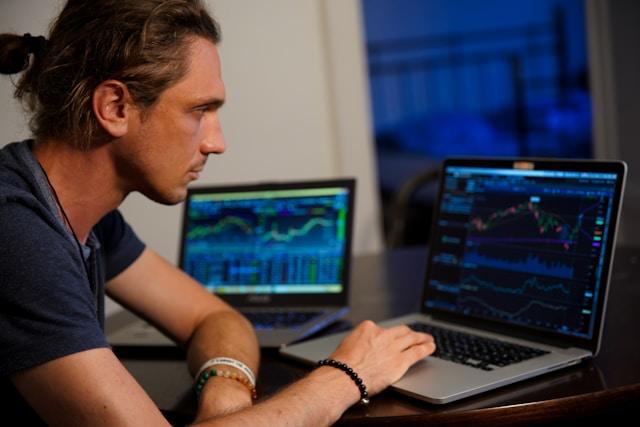The Investor’s Guide to Prop Trading: Opportunities and Risks

For investors looking to participate in the financial markets, proprietary trading or prop trading offers special opportunities as well as hazards. Making wise investing decisions and optimizing prospective profits while skillfully managing related risks requires an understanding of the nuances of prop trading. In order to remain competitive in ever-changing market settings, investors who prop trade should also place a high priority on lifelong learning, keep up with current market trends, and modify their methods as necessary.
1. Opportunities for Enhanced Returns:
By leveraging the firm’s resources and money strategically, proprietary trading, or prop trading, offers investors the chance to receive higher profits. Using the firm’s money to increase purchasing power and make bigger deals than could be done with an investor’s funds alone is one of the main benefits of prop trading. Investors can benefit from enhanced liquidity and market depth by utilizing the firm’s resources, which empowers them to pursue a wider array of trading opportunities in many asset classes and marketplaces. Investors may now pursue more aggressive trading methods and take advantage of price disparities, market inefficiencies, and short-term trends that could offer significant profit possibilities thanks to this increased trading capacity.
2. Diversification of Investment Strategies:
For many investors, diversification of investing methods is a fundamental idea. Prop trading companies facilitate access to a variety of marketplaces and asset classes, which makes this technique possible. These businesses serve as marketplaces where traders may engage in a variety of trading activities, such as trading derivatives, equities, currencies, and commodities. Investors can diversify their risk across several assets and generate profits by utilizing the infrastructure and knowledge offered by prop trading firms. Many investors may customize their strategies to fit their investing objectives and risk tolerance thanks to this diversified strategy, which is in line with their aims. By collaborating with prop trading organizations, investors may efficiently handle the intricacies of many markets and take advantage of a wide range of chances to enhance their investment portfolios.
3. Potential for Professional Development:
Prop trading offers investors a plethora of options for professional growth since they are immersed in an atmosphere that fosters learning. Prop trading companies frequently provide an environment of ongoing development, which promotes cooperation and knowledge exchange among traders with different degrees of expertise. Investors may learn about sophisticated trading methods, risk management tactics, and market dynamics by utilizing the firm’s tools and engaging with seasoned specialists. Furthermore, engaging in prop trading activities actively provides hands-on experience that enhances confidence and skill development in navigating complicated financial markets. Investors improve their trading skills and set themselves up for long-term success in the fast-paced world of trading as they hone their strategies and adjust to shifting market circumstances.
4. Risks of Capital Loss:
Prop trading has inherent dangers, the most significant of which is the possibility of capital loss, even if it has the potential to yield higher profits. Prop traders must understand and be willing to bear the risk of losing money because trading in financial markets is, by its very nature, unpredictable and volatile. Leverage increases the possibility for both gains and losses, intensifying the effect of market changes on investment funds. Furthermore, the state of the market is subject to sudden changes, and traders may have unfavorable results. Investors must put strong risk management techniques into place that are suited to their trading goals, risk tolerance, and market circumstances in order to reduce the chance of capital loss.
5. Market Volatility and Uncertainty:
Investors in proprietary trading, or “prop trading,” have to deal with a number of important issues, including market volatility and unpredictability. Due to a variety of reasons, such as investor emotion, geopolitical events, and economic indicators, financial markets are naturally volatile and subject to swings. These swings bring dangers that investors must successfully manage in addition to potential profit-making opportunities. Increased trading activity and quick price swings brought on by market volatility can offer traders both possibilities and difficulties. Because prices can fluctuate quickly and unexpectedly, increased volatility raises the possibility of losses even while it may also present a greater opportunity for gains.
Conclusion:
Prop trading offers investors who want to play in the financial markets both possibilities and hazards. Investors may attain their investing objectives by making well-informed judgments, optimizing prospective returns, and skillfully managing related risks by comprehending the possible advantages and drawbacks of prop trading. To properly traverse the complexity of the financial markets, one must practice rigorous research, risk assessment, and adherence to trading techniques.





